Creative chameleon Felicity Morgan-Rhind: ‘How empathy makes me a better director’
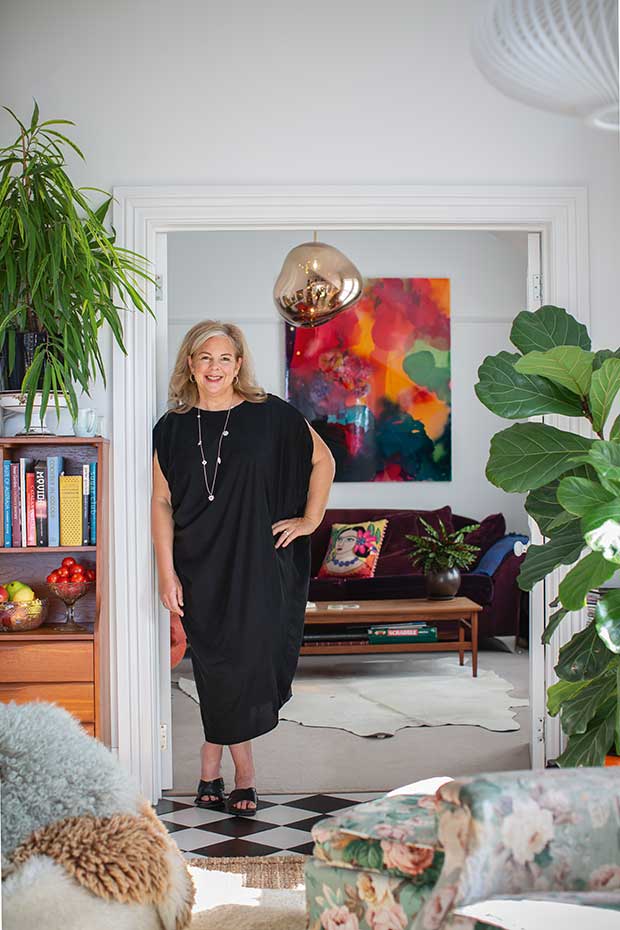
A happy childhood in a musical family led one young woman to pick up an instrument, whisk up life with a wooden spoon, and ultimately, to film stories of human compassion.
Words: Claire McCall Photos: Tessa Chrisp
This article first appeared in the Sept/Oct 2018 issue of NZ Life & Leisure.
Film director may be the occupation on Felicity Morgan-Rhind’s bio but even she would struggle to shape and edit the movie of her life. The dilemma? What to focus on and what to relegate to the cutting-room floor.
And, like all good stories, there is a twist in the tale.
Felicity is a sixth-generation New Zealander – her great-great-great grandparents on her maternal side emigrated from London to farm at Te Wera, Taranaki, in 1842, while her great-great-great grandparents on her paternal side went from Glasgow to Papakura, Auckland, in 1864.
A century later, her parents were the first generation in the family to move away from farming and into the city. Felicity and her two sisters enjoyed a richly interesting childhood.
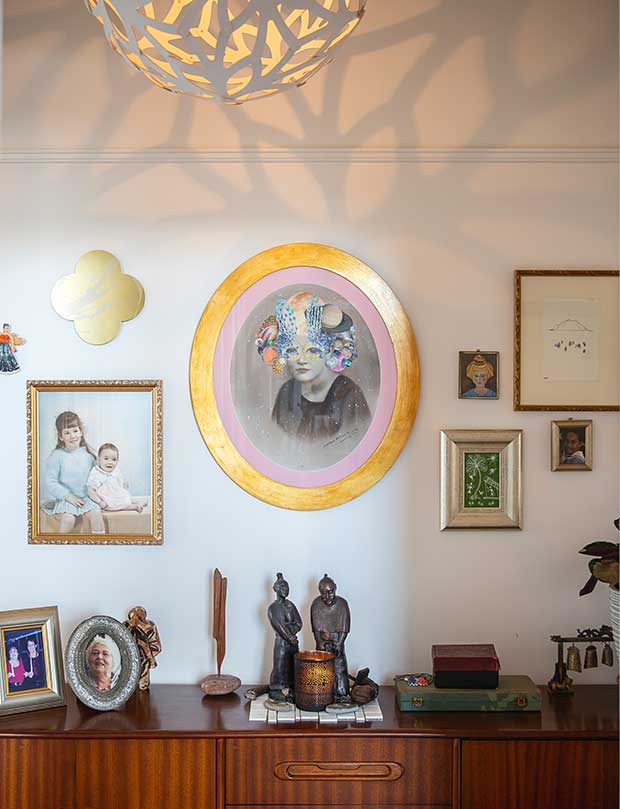
“There was so much love, connection and kindness, and we were expected to follow our dreams. Dad was a timber merchant and a sailor, mum was a scientist, teacher and wannabe architect. They were both also fabulous musicians who could play anything by ear.”
Looking back, she mostly remembers a home filled with melody: her grandfather, in his 90s, seated at the piano – “he went blind but he could still play” – her father’s cheerful tunes on the harmonica and mandolin, and her mother accompanying them on the piano.
Her mum was so committed to the musical cause she started the Papakura Music School to give her daughters and their contemporaries a better chance to learn. “Music was everything,” says Felicity.
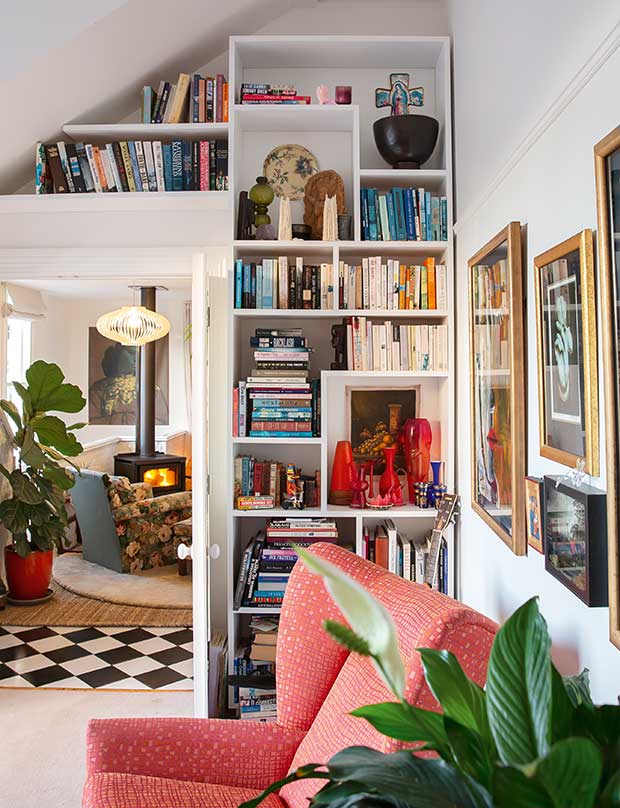
Kirsty Winter designed these bookshelves especially for the relocated villa. “I love to read intense psychological family dramas,” says Felicity.
Well, not quite. Food took a starring role too. By the time she was six, this young protégé was helping an uncle, a chef, to make moussaka from aubergines grown from seeds he had specially imported. “It was the early 1970s so I guess we were ahead of our time.”
When that same uncle married a Parisienne, Felicity learnt how to roll out croissants to bake in the coal range and drank coffee from bowls. The emerging gourmand was also introduced to escargot.
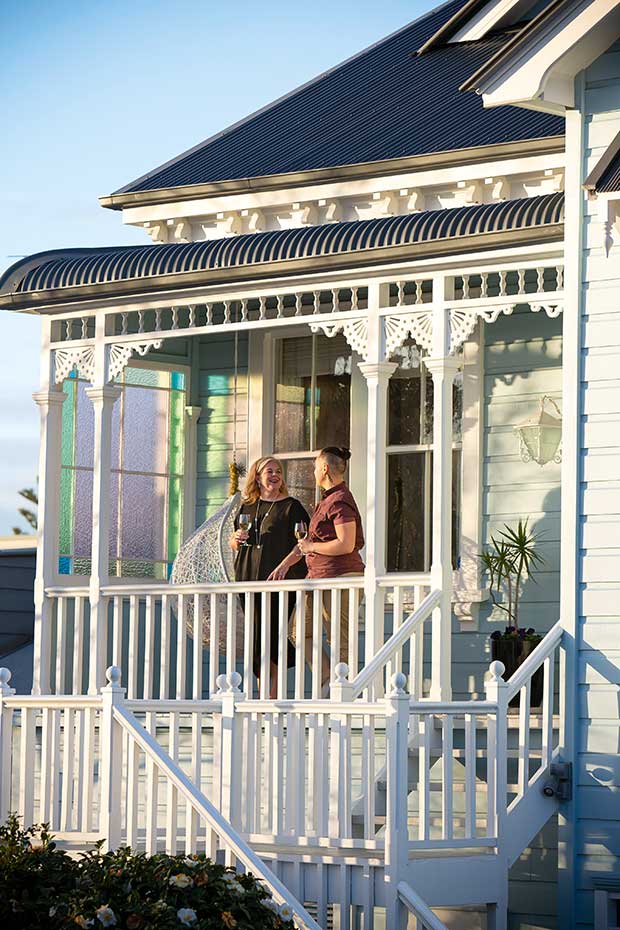
On a clear day, the outline of the Coromandel peninsula can be seen from the terrace. The house is made up of two joined-up villas owned by the Sheahan family and moved from Newmarket to this Parnell location 30 years ago.
A month before Christmas, garden snails were fed a diet of garlic and parsley, then plucked ignominiously from their herbaceous table and covered with salt to secrete the grit. “They were so delicious,” says Felicity.
A great-aunt who married a German ensured another tier of European sophistication made it to the festive feast, with over-sized gingerbread houses that were a young girl’s dream.
When the time came for tertiary study, Felicity chose social anthropology at Otago. “I was and still am really curious about what makes our lives meaningful.” Back then, she couldn’t know that, 30 years on, telling people’s stories would be her life calling.
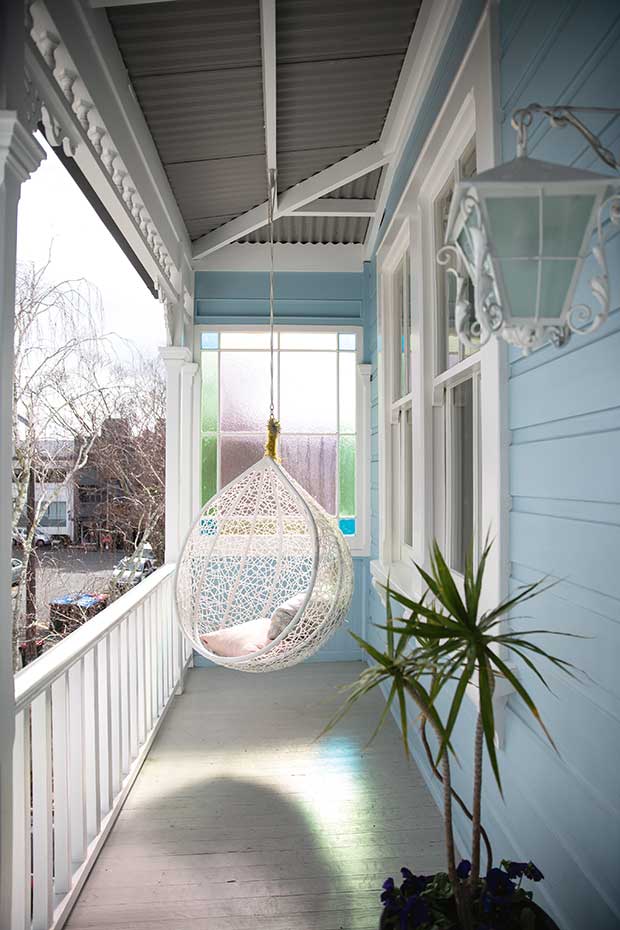
An owl by Australian artist Megan Seres is named Te Ruru. “She’s the guardian of our home and welcomes people in,” says Felicity.
University did nothing to focus this interest – in fact it sent her completely off track. “I was on a ski holiday with some friends, including [singer/songwriter] Jan Hellriegel, when we heard about the Dunedin Women’s Festival and thought, ‘Why not form an all-girl band?’”
In a little more than two weeks, the five-piece Cassandra’s Ears was live on stage. Although Felicity ‘Flick’ had studied the flute, piano and oboe, she had never played the bass.
“I picked it up and it came easily. I played entirely on instinct so, in some ways, it was a rejection of all the rules. We all believed we were going to be famous musicians and Jan was very driven.”
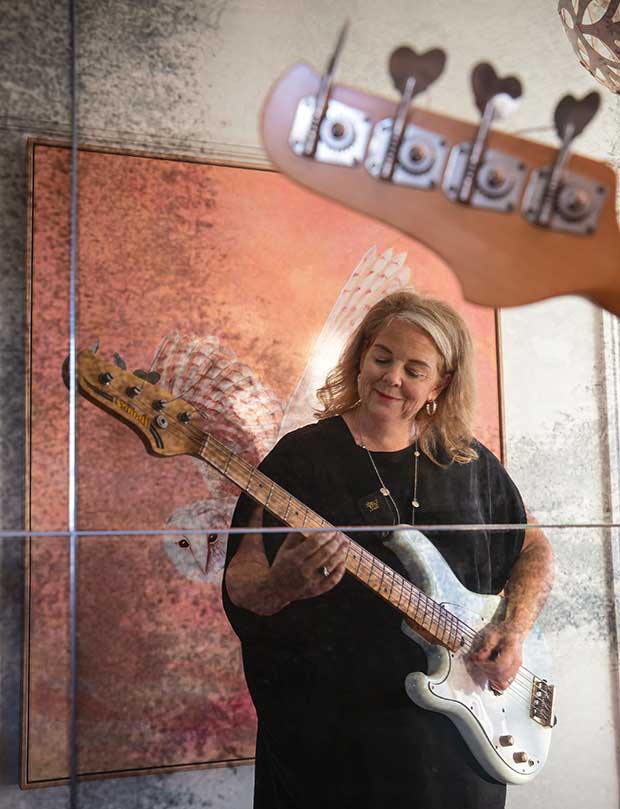
Felicity writes tunes on the bass and when time allows, jams with the band Mad About Maud. “When I’m playing with friends, everything else dissolves.”
The group received funding from the Ministry of Women’s Affairs, released two EPs and toured with band Straitjacket Fits. After five years, it was hard to accept the end when Jan signed a contract and left to pursue a solo career.
But there was a silver lining: it was the catalyst for Felicity to head off with her then-girlfriend on their OE.
She remembers the bitter cold on her first day in London. “It was the late 1980s, I was 22 and had never had a real job in my life. But we were young and free and it was so exciting. We lived in a squat in Bonnington Square where the houses were earmarked for demolition and icicles hung from the ceilings. I had no clue what I was going to do.”
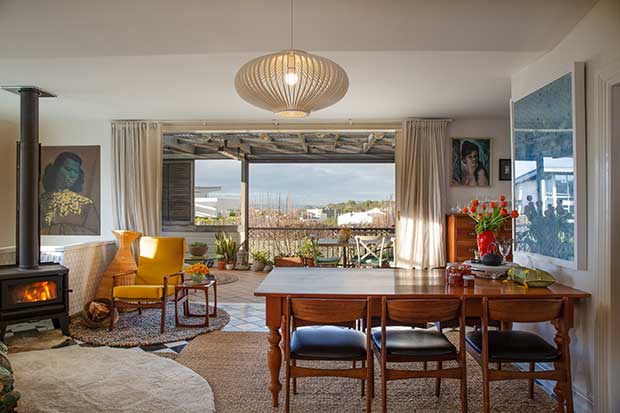
Relaxing is a priority at home which has no less than seven couches and many other places to sit including the yellow chair given to Felicity’s mum and dad as a wedding gift in 1962.
Lunch at a vegetarian café changed all that.
“I looked at what I was eating and thought, ‘I could make this.’ So I bowled up to the counter and asked if they needed a chef and they gave me a trial for the following Tuesday.” As luck would have it, Felicity was invited for a weekend in the country where she met Jonathan Rutherfurd Best, a fellow New Zealander (and now co-owner of Waiheke Island’s Oyster Inn) who worked in the food industry.
She spent the entire time devouring his collection of cookbooks and, when her knowledge was tested by the café proprietor, her curry with olives dish was a hit. “I felt my way into the food business,” says Felicity who didn’t stop reading cookbooks for a year after that auspicious start.

Entertaining is a favourite past-time and Felicity is an accomplished cheesemaker who makes her own Stilton, Brie and Camembert.
She went on to run a café in Bonnington Square where the modus operandi was for her and her team to go dumpster diving for “spoilt” food in the bins of Covent Garden market and then create a menu from it. “We charged one pound per course.”
Soon, she was dividing her time between the café and Jonathan’s Urban Party Culture – a top-shelf catering/events company favoured by the film industry. She didn’t absorb her knowledge all by osmosis though.
Peter Gordon turned up one day in the kitchen. “He walked in, said ‘let me show you how to use a knife’, and changed my life.”
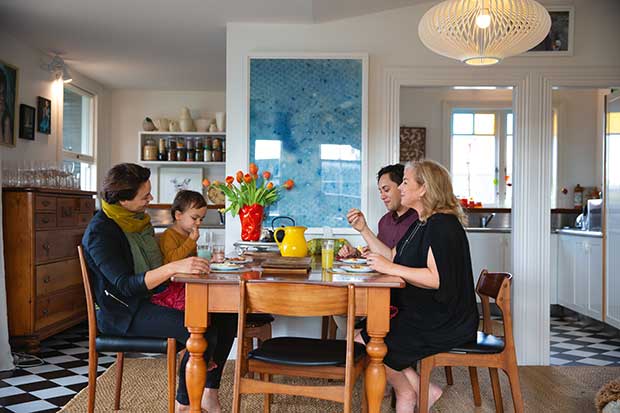
Family, including her foster daughter Naomi (alongside her), her other ‘daughter’ Taryn’s partner Sasha and their two-year-old Miha are frequent visitors. They play music, have fun and eat adventurously. “Miha loves brown-rice pancakes with poached eggs for breakfast,” says Felicity. The blue artwork above the dining table is by Jill McIntosh.
After a week of practise, she was “chopping like a bastard” – just as well because her first solo gig three years later was for a sit-down meal for 400. “I remember looking out the window with 400 racks of lamb in the oven.
It was snowing and I was thinking, ‘Where are you, Pete?’” The evening went off without a hitch and when Vogue Entertaining named her a young Antipodean chef to watch, she thought she’d found her path.
Looking back over Felicity’s working life, it is clear that her careers are sparked and supported by a trail of love and friendships. “I met so many of my lifelong friends at Bonnington Square.” That includes good friend Huw Morgan, and a neighbour, Evan English, who was the first to suggest a foray into film.
“It was an adult-education course in Pimlico and I wrote a script about two people in a relationship who both did shift work and only ever met in the toilet.”
Although she enjoyed the food game and was good at it, the film experience gripped her and would not let go. “I love food but I love film so much more,” she says. “It opened up a whole new medium of expression.
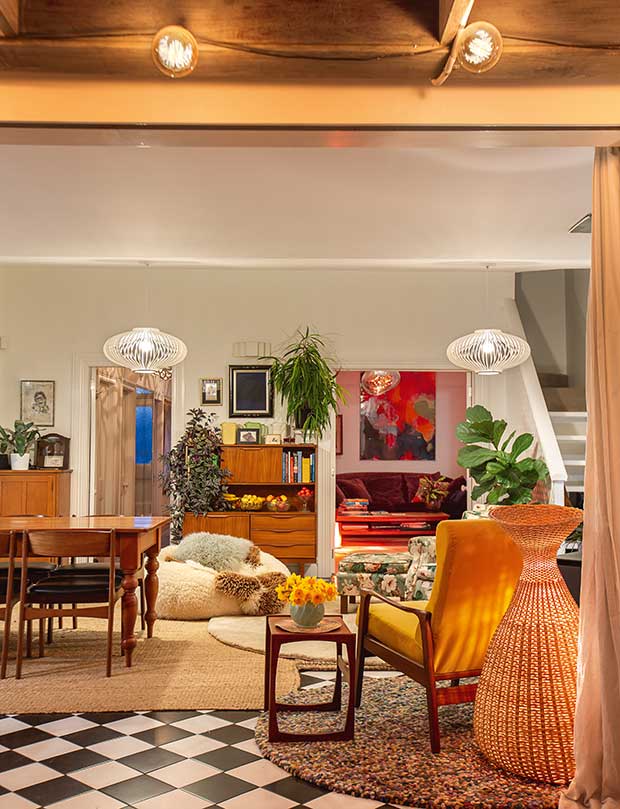
Warm and richly decorated, the house is always good to return to after a tiring work trip. Felicity recently traveled to Beijing and Shanghai for nzstory.govt.nz to direct interviews with Chinese chefs, actors and businesspeople who have experienced the manaakitanga of New Zealand. Currently Arani and Felicity are working on the Diva Productions’ ‘What Women Want’ event that will feature on stuff.co.nz as part of the suffragette celebrations.
From the writing to the direction, the lighting, production design, the music and the editing, film-making embraces so many art forms.”
It was another girlfriend, an editor at Paramount Studios, who invited her to Los Angeles for a three-month writing sabbatical. Felicity downed her whisk and took up her pen.
So began a gloriously indulgent phase when she spent hours in an empty editing suite writing scripts and at lunchtime, was invited to hang out and see how clips and takes came together.
Fortune smiled on her. She secured some work experience at Tim Burton Productions, got to meet big-name industry players like Gus Van Sant and Jodie Foster, but mainly she absorbed learnings from “people who were really passionate about what they did”.

Miha enjoys a re-reading of his favourite book, What noise does a lion make? Beneath the table, a suitcase holds the handwritten memoir of Felicity’s grandma’s life growing up in Te Wera and on the wall is a watercolour by Felicity’s mum Sylvia.
Remember that neighbour in Bonnington Square? It was about this time that Evan English, who had secured funding from the Australian Film Commission for a new project, gave her a path-changing call. “He wanted a writing partner for a film so we went off to Oz to do some research,” says Felicity.
On the other side of the world, once again, the stars aligned. She fell in love with Leanne Ibell (former fellow band member of Cassandra’s Ears) and was accepted at Melbourne’s prestigious VCA film school. “I hadn’t actually made a single film at that stage and out of about 400 applications, with only 13 places, I got in.”
So far, so charmed: sliding effortlessly between careers and being presented with unexpected challenges and opportunities sounds like a dream for a creative sort. It was and it wasn’t. Like the promo for her first short film (Donuts for Breakfast) goes: “shiny on the outside, rotten in the middle”.
Through the years, Felicity was battling a hidden demon. “I remember the first time I had a panic attack,” she says. “I was 28 and driving down the motorway on the way home to Papakura when suddenly I had the feeling I was going to die. I had to pull over on the hard shoulder beneath the Tip Top sign.”
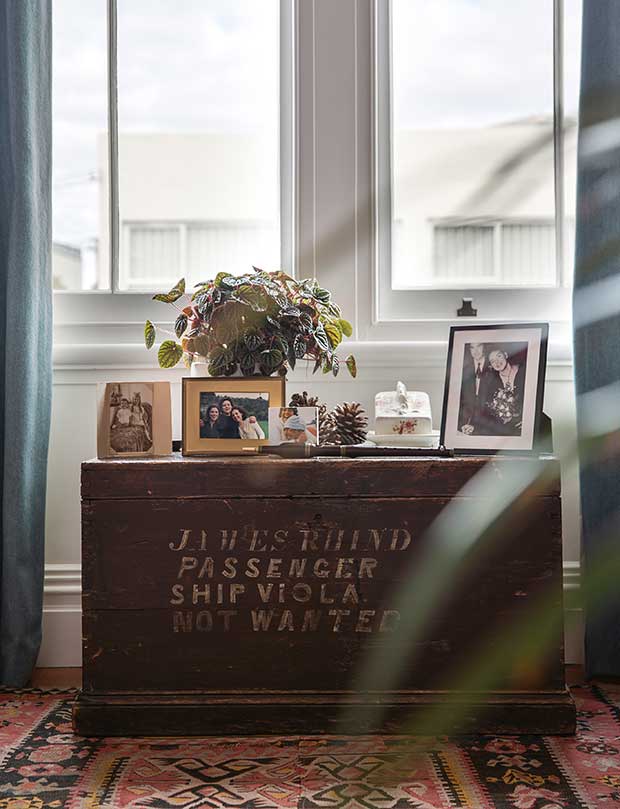
The seachest that accompanied Felicity’s great-great-great grandfather from England is a prized possession and the perfect place to display family photographs along with a flageolet and butter dish that came to New Zealand on that original journey in 1864.
It was a rude awakening. “Nothing had ever stopped me or gone wrong before. And because the condition went undiagnosed for four years, I just thought I was going crazy. I’d go from hyper to bedridden in moments; it freaked some people out. There were periods when it got so bad that I just couldn’t leave the house. Somehow I managed that year of film school through sheer determination.”
When doctors eventually settled on a diagnosis of anxiety, she was given the help she needed. “We are lucky to live in an age where pharmaceuticals can maintain our quality of life.”
Therapy, too, has helped. “For some years I blamed my dear mother. I felt she put a lot of pressure on me as the eldest, but I now realize it wasn’t her fault. I was brought up to believe I could do anything. And I’m grateful. And suffering a mental-health issue has made me so much more empathetic.”
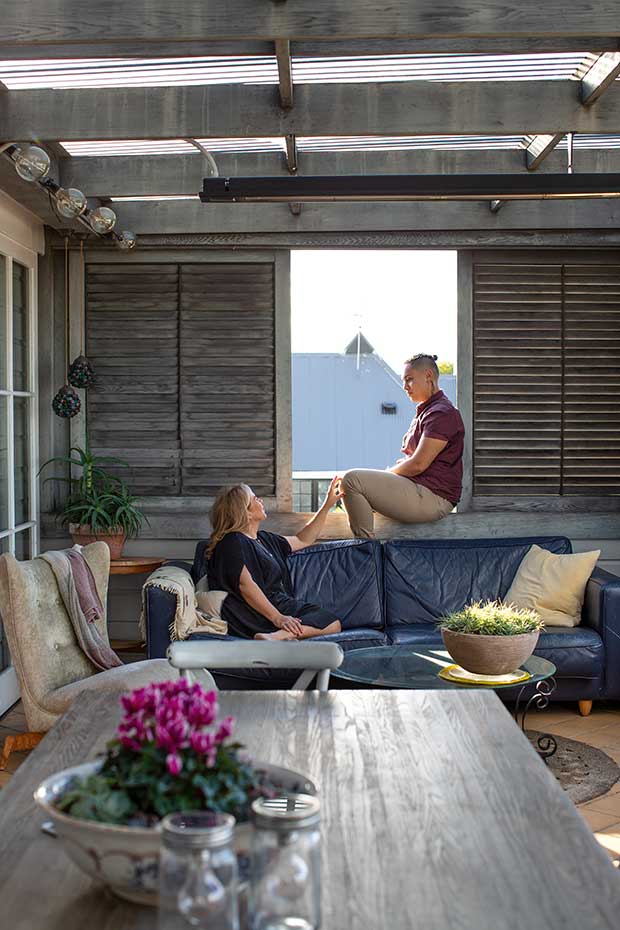
Felicity and Naomi often hang out on the sheltered terrace but the two-storey home also has a spa pool and pool slivered along one side of the building so it’s set for all seasons.
It’s a quality essential in a film and documentary-maker. Eventually, Felicity made her way back to New Zealand and has since carved a name for herself. Donuts for Breakfast, set in a white middle-class suburb of Auckland, earned a showing at the New York and Sundance festivals, a documentary about abortion received a Media Peace Award and she has seen success in the world of commercials too. “Adverts allow me to hone my craft in a highly creative environment.”
These days she lives with her partner in love and work, producer Arani Cuthbert, in their Parnell home which is invariably filled with music, laughter, family – and mouth-watering aromas from the kitchen.
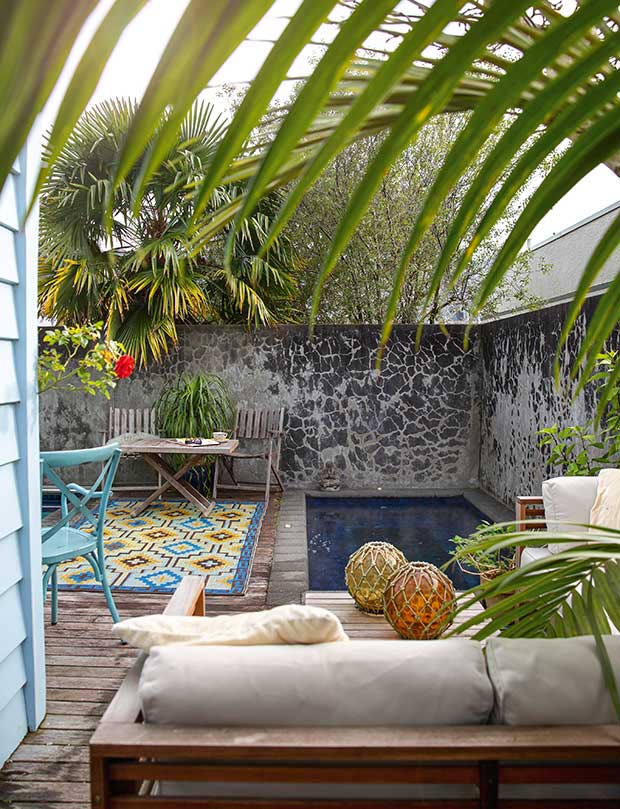
“For at least eight months a year I start and finish each day with a swim, and our pool is there for all the people we love year round,” says Felicity.
It was Arani who introduced Felicity to her teenage heroes the Topp Twins, which led to her directing Lynda and Jools in the TV series Topp Country. “It was terrifying to meet them but they really believed in me. They are good women who stand for stuff I believe in and I have a great love and a deep respect for them,” she says.
Arani and Felicity often have whānau to stay, including Felicity’s foster daughter, Naomi, whom she took under her wing as a sad and frightened teenager. “Her mum had just died and her dad wasn’t coping. She’s the best experience of my life.” Taryn, a young woman she befriended six years ago, is her other “daughter”.
Felicity is now Nana to Taryn and her partner Sasha’s two-year-old son, Miha.
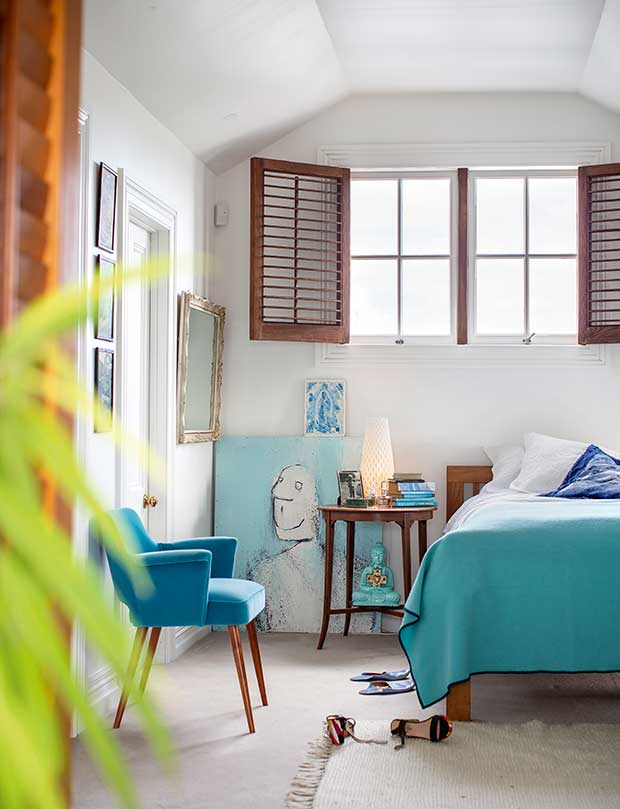
Restful blue and white tones in the attic-style master bedroom have a Grecian feel. ‘Mr Happy’ was given to Arani by Lynda Topp many years ago. “He’d been stored in a garage but I got him out as soon as I spotted him. He just makes me feel joyful,” says Felicity.
The power of togetherness is explored not just in quotidian moments at home but in her work life. Felicity is currently working on a feature film script, The Long Drop, with Jools and Lynda, featuring their ‘Ken’ characters and set in a rural community fighting to save its water.
And she’s directing an ongoing campaign with Exit Films and Many Minds called NZ Storytelling – a series of small films that share the ingenuity endemic in this country across all spectrums, and presents Aotearoa as a fabulous place with which to collaborate.
“I have loved working on the series. New Zealand is producing such an amazing pool of talented and caring change-makers and it’s great to share that with the world.”
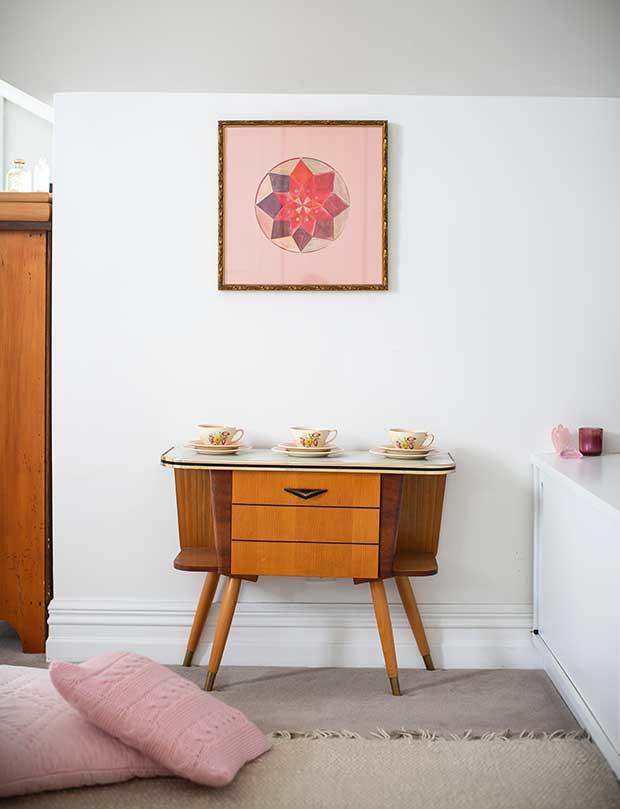
The mandala – completed at a yoga retreat in Croatia – is Felicity’s first bash at painting and hangs above a retro chest bought on TradeMe where a teaset belonging to Arani’s grandmother picks up the vintage pink theme.
Another heartfelt project is How Mr and Mrs Gock Saved the Kumara (watch it on thisnzlife.co.nz). It’s the touching tale of two Chinese immigrants in South Auckland who bred a strain of kumara that could withstand black rot and then gifted it to the struggling farming communities of Northland.
Felicity may no longer be continuing her heritage of physically farming the land, but she’s nurturing a love of it – and its multi-cultural cast – in her own distinct way.
A PLACE IN THE SUN
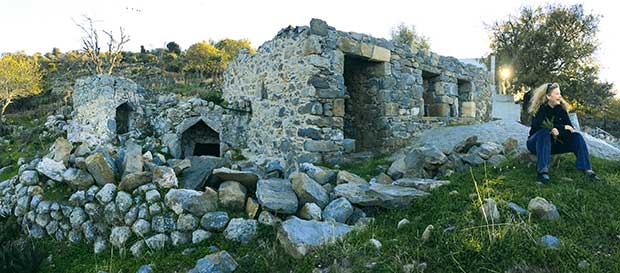
This pile of rocks on a tiny Greek island off the coast of Kos is a project in progress which one day will contain a cheeseroom and meditation cave.
Many of the friends Felicity made during her time in London’s Bonnington Square have remained an integral part of her life and now it seems the future will be wrapped around them too.
Felicity and Arani were recently offered some land owned by restoration architect Giorgos Tsironis on a tiny Greek island, which has 900 permanent inhabitants and 2000 stray cats. It lies off the coast of Kos. Together they plan to “restore some rocks” to create a humble holiday home.
When the spiladi (a traditional stone house) is rebuilt, the wine-storage cave on the property will be converted to accommodate her latest obsession: cheese making.
Huw Morgan, his husband Daniel Pearson and artist friend Ariane Severin have also restored buildings on the island.
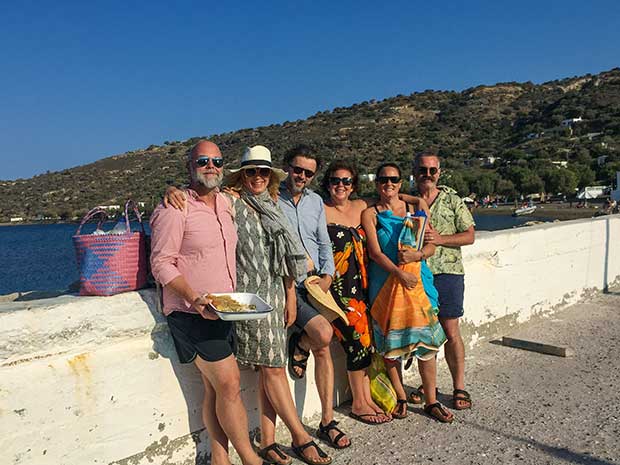
In a sort of homecoming, these forever friends (from left) Nic Roome, Ariane Severin, Daniel Pearson, Felicity and Arani, and Huw Morgan have all ended up with holiday places on the island.
“The locals have such a rich connection with culture and the land and are so very welcoming. It’s exciting times. The people I met in my 20s are coming back together.
We’re reforming.
Having a place to call home there is part of our 30-year plan and it feels absolutely perfect. And what will I do when I’m there? I’d like to establish a cat sanctuary.”
Love this story? Subscribe now!
 This article first appeared in NZ Life & Leisure Magazine.
This article first appeared in NZ Life & Leisure Magazine.
